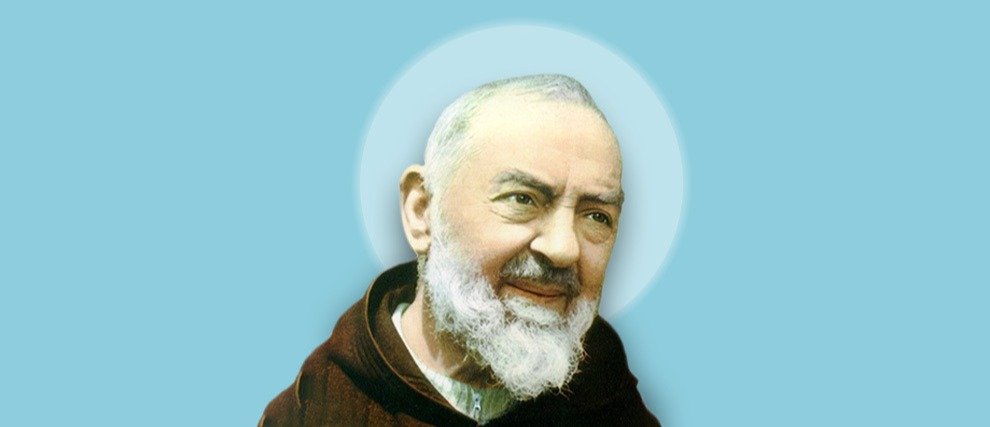Saint John's Day: Meaning, History, Celebration, Prayer
Every year, on June 24, the feast of Saint John the Baptist takes place, during which the Catholic Church celebrates the birth of Saint John the Baptist, Jesus' cousin. During this important solemnity, the Church honors the “prophet of the Most High,” the one who baptized Christ in the waters of the Jordan, and who invited us to recognize him as the Messiah, the Lamb of God.
What is the Feast of Saint John?
The feast of Saint John: the celebration of the nativity of John the Baptist!
On June 24, six months before Christmas, the feast of Saint John the Baptist takes place, called the feast of the birth of Saint John the Baptist by the Catholic Church.
During this important solemnity, the Church celebrates the prodigious birth of Saint John the Baptist, Jesus' cousin, son of Zechariah and Elizabeth.
Biblical account of the nativity of John the Baptist
The rich account of the birth of John the Baptist is delivered to us in the Gospels! His birth is surrounded by divine signs, demonstrating the importance of his ministry and his role as a forerunner of Christ!
Indeed, the announcement of the birth of Jean-Baptiste is in itself extraordinary: Zechariah receives a visit from an angel, announcing to him that his wife Elizabeth will give birth, despite her barrenness and advanced age. But Zechariah, incredulous, was “silenced.”
A few months later, while Elizabeth was pregnant, she received a visit from the Virgin Mary: at her sight, the child she was carrying “leapt with joy” inside her!
Finally, we learn that at the birth of John the Baptist, Elizabeth and Zacharie went aginst tradition and decided to call their son John, which means “God has mercy.” Then Zechariah's tongue was untied, and he proclaimed: "And you, my child, will be called a prophet of the Most High; for you will go on before the Lord to prepare the way for him,” (Luke 1:76)
History of Saint John’s Day
The feast of Saint John was originally a pagan feast, celebrated well before the birth of Jesus. Meant to bless the harvests, Saint John's Day was above all an agricultural festival, taking place at the time when the days were longest. It was celebrated by large bonfires, also called Saint John's fires. They symbolized the return to the light of summer, and the ash was then used to preserve the crops from the weather.
This feast was then Christianized, the Catholic Church giving it a much deeper meaning: Saint John is the one who bears witness to the light, who prepares the people for the coming of the Messiah, the true light that shines on the world! The symbolism of the summer solstice, as the length of the day begins to decline, also refers to the words of Jean-Baptiste “He must become greater; I must become less.” (John 3:30).
The Celebration of the Nativity of Saint John the Baptist
Why is the Church celebrating the birth of John the Baptist?
Here is what Saint Augustine wrote about the nativity of Saint John the Baptist: “The Church considers the birth of John the Baptist to be particularly sacred: we do not find any of the saints who preceded us whose birth we solemnly celebrate. We celebrate only that of John and that of Christ. It cannot be without reason.”
So why is the Church honoring Saint John the Baptist in a special way?
Benedict XVI gives us some answers: “the liturgy celebrates the birth of John the Baptist, because it is closely linked to the mystery of the incarnation of the Son of God. From the mother's womb, John is the precursor of Jesus: his prodigious conception is announced by the angel to Mary, as the sign that 'nothing is impossible with God.”
Indeed, John the Baptist was sanctified even before his birth by the visit of the Virgin Mary, carrying Christ in his womb! “Prophet of the Most High,” his birth announces the approach of redemption and thus opens a new chapter in the history of humanity!
“Prophet, apostle, teacher, loner, virgin, martyr, he is more than all this, because he is all this at the same time. He brings together all the titles to holiness, and, gathering in himself all that constitutes the different classes of the saints, he forms in their midst a particular class.” (La Luzerne)
Liturgy of the Solemnity of the Nativity of Saint John the Baptist
As it is a solemnity, the celebration is composed of two services, with a vigil on the evening of the 23rd and the Mass of the day on the 24th.
The entire liturgy of the Solemnity of the Nativity of Saint John the Baptist invites joy, for he is the one who prepared the way for the Lord and announced the coming of the Savior: “Thou hast willed, Lord, that Saint John the Baptist should prepare Thy people for the coming of the Messiah; grant Thy Church the gift of spiritual joy, and guide the spirit of all believers in the way of salvation and peace.” (Prayer of opening)
Although the readings vary according to the liturgical year, we read each year the Gospel of Saint Luke, which traces the story of the birth of John the Baptist, since the announcement of the angel to Zechariah “Your wife Elizabeth will bear you a son, and you are to call him John […] He will bring back many of the people of Israel to the Lord their God.”(Luke 1:5-17), until the proclamation of the name of John. “He asked for a writing tablet, and to everyone’s astonishment he wrote, “His name is John.” 64 Immediately his mouth was opened, and his tongue set free, and he began to speak, praising God.” (Luke 1:57-80)
Prayer to Saint John the Baptist
“Blessed John, you who baptized the Son of God, you were filled with the Holy Spirit even before you were born. And you recognized God before the world knew Him. You recognized the Mother of your God before your mother greeted her. Friend of God, intercede for us.”
Prayer of Saint Anselm of Canterbury
Pray with Hozana on Valentine’s Day!
A great feast in the Church, the nativity of Saint John the Baptist, invites us to honor the one through whom “God gives grace,” as his name indicates. A Roman martyrlogist wrote this about Saint John the Baptist: “Grace shone so much in him that the Lord himself declared that among the children of men, there did not exist any greater than John the Baptist.”
So, on the occasion of Saint John's Day, June 24, pray to Saint John by joining the beautiful prayer communities of Hozana:
- to continue to reflect on the signs that announced Jesus’ coming.

